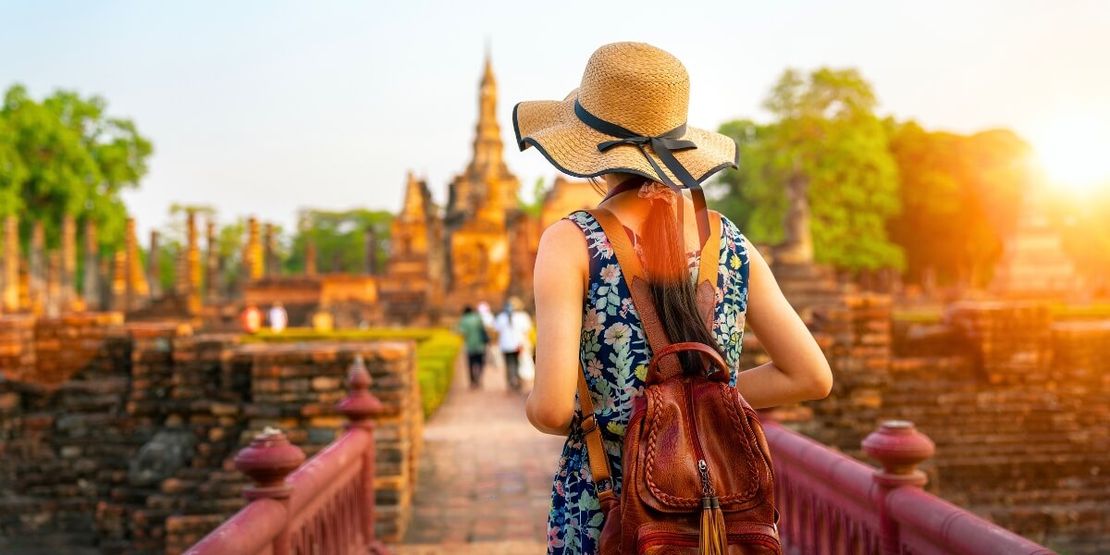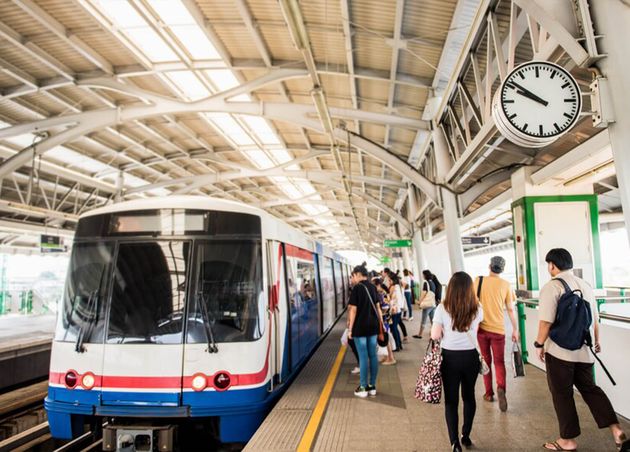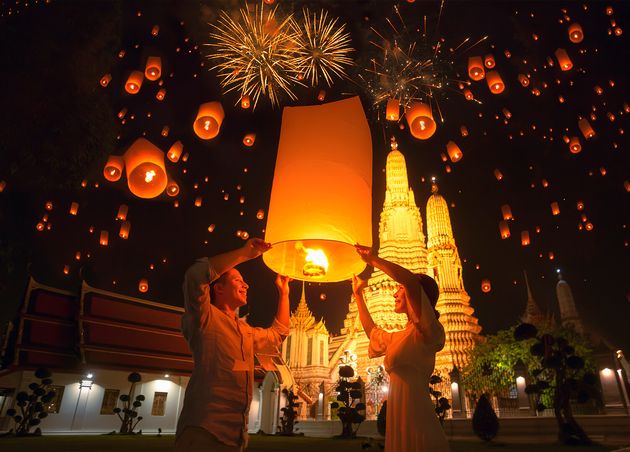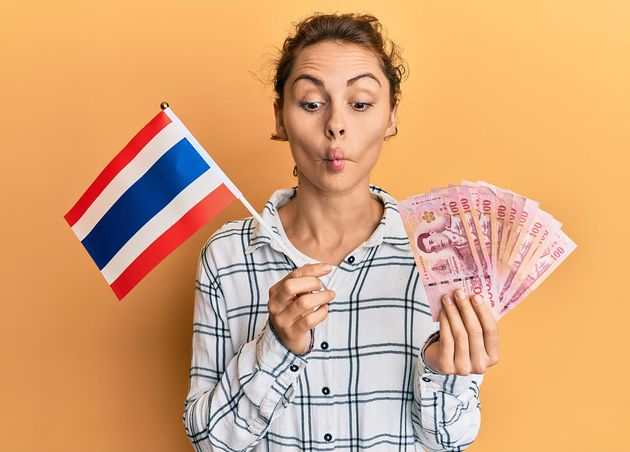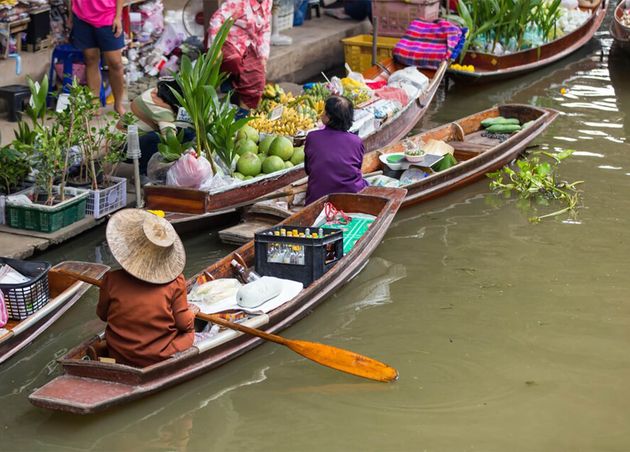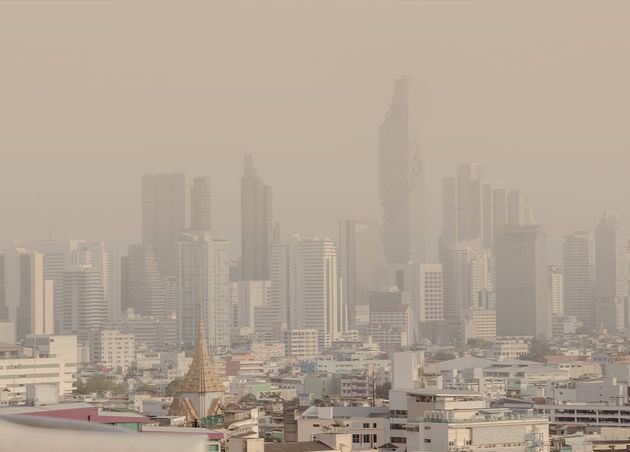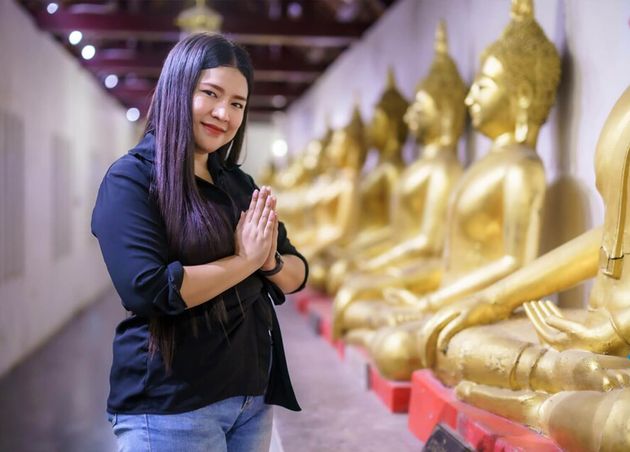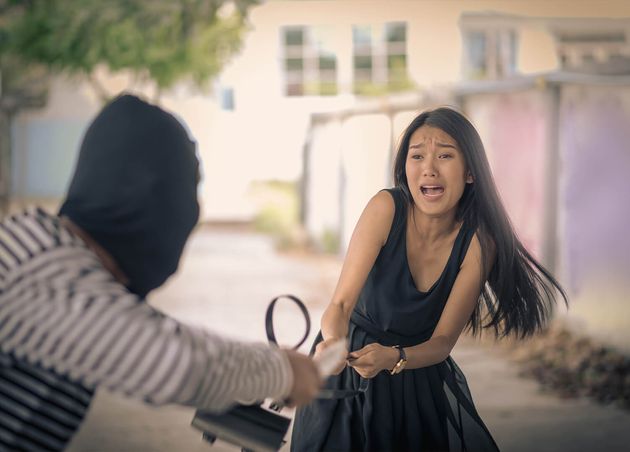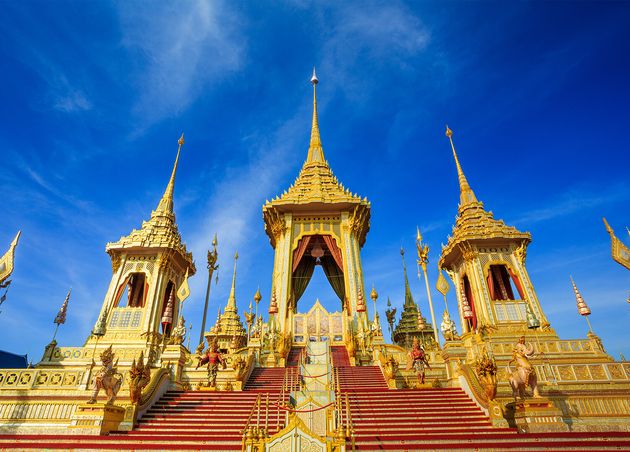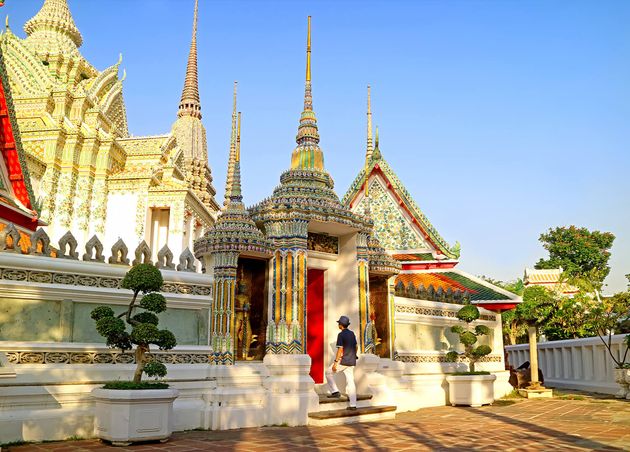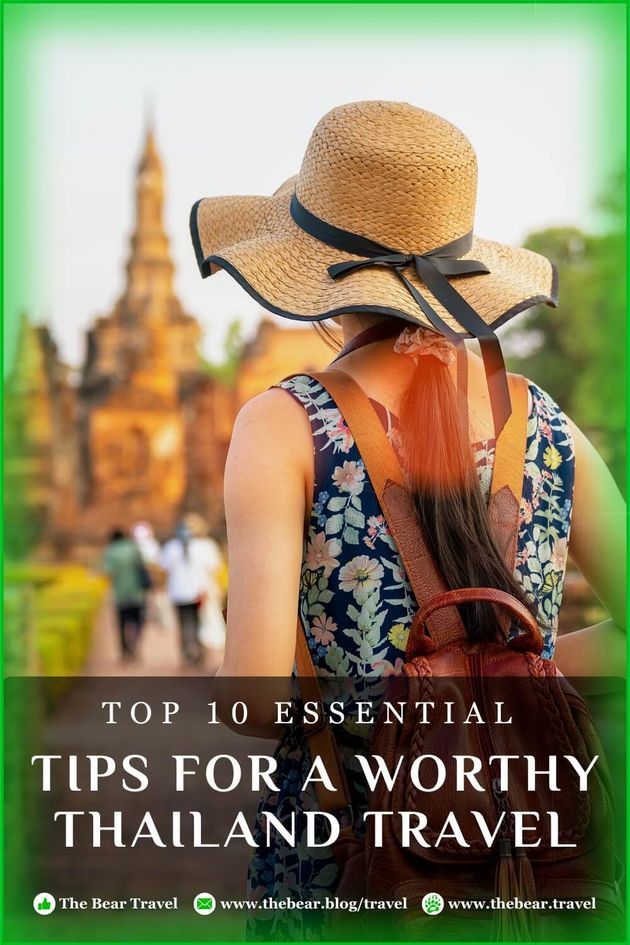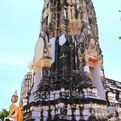Top 10 Essential Tips for A Worthy Thailand Travel
Thailand is renowned as one of the most famous tourist destinations in Southeast Asia, and many travelers from every corner of the world hope to visit it.
The main reason for this popularity is that it has so many gorgeous beaches and beautiful islands, and it is worth visiting villages, cities, temples, and the best cuisine you’ll ever taste. Furthermore, with its best tourism infrastructure, you will feel like you have entered another world.
But you should know about the many rules and cultural differences before you visit Thailand. So, reading my article will help you to spend a good vacation in Thailand while traveling safely and responsibly throughout the country.
Essential Travel Tips for a Memorable Experience in Thailand
When traveling to Thailand, immersing yourself in the local culture is crucial for a rewarding experience. Thailand is not only known for its stunning landscapes and vibrant street life but also for its rich traditions and customs that shape everyday interactions. So, here I'm about to share the top 10 travel tips for Thailand to help you have the best experience possible.
#10 No Extra Plans on Travel Days
"Why are some Thai people always late?" is often a question many Thai people get asked, and what can they say? Most Thai people come from a culture of compromise where the buses and vans will only leave when it's full. Hence, they said nothing displays this more than when you want to get somewhere in Thailand using public transportation.
Do not expect anything to go on time when you want to travel around Thailand with time to get us public transportation. Come at least 30 minutes before the "schedule," and do not plan anything else that day; that is the golden rule to live by when you travel in Thailand.
For example, if you plan to travel from Krung Thep Maha Nakhon (Bangkok) to Kanchanaburi, even though it is only 140 km away, expect nothing but to travel that day. That way, you will have the time to get used to your new setting and not be disappointed if you miss out on something due to buses running late.
#9 Visit During Festivals
- Water Festival (Songkran)
Songkran, the Thai New Year festival, is not just a mere celebration but rather a three-day water-filled extravaganza. It takes place nationwide, and if you find yourself in Thailand between the 13th and 15th of April, you'll be immersed in this festive event no matter where you go! The festivities involve lively water fights and splashing water on each other, making it an exciting and more memorable experience for locals and visitors alike. - Monkey Festival
Lopburi is an extraordinary town with an intriguing feature: it is home to around 3,000 wild macaques. These mischievous monkeys often dominate the ancient ruins, causing mischief by stealing food and sometimes even causing trouble for the residents. Interestingly, humans don't hold the upper hand during this unique festival. Annually, the town hosts the Lopburi Monkey Banquet Festival, where humans and monkeys converge. During this event, the simian residents are treated to an impressive spread of over 4,000 tons of fruit and vegetables, creating a fascinating sight of both human-macaque interaction and the quirky harmony that prevails in Lopburi. - Vegetarian Festival
Visitors expecting a delectable meat-free food festival may be taken aback during the Vegetarian Festival in this city. This festival typically occurs in late September to early October, depending on the lunar calendar. Travelers should check local schedules for specific dates each year. This unique event, deeply rooted in the lunar calendar, traces its origins back to the Chinese community residing here. The Vegetarian Festival showcases an extraordinary and unusual celebration, offering a fascinating experience to those who participate. - Chinese New Year
Chinese New Year is especially celebrated in big cities like Krung Thep Maha Nakhon (Bangkok), Chiang Mai, and Phuket. It falls in February, and remember the lunar calendar as it is one of the earliest in the Gregorian calendar year. - National Thai Elephant Day
On March 13th of every year, Thais celebrate their national symbol – the elephant. In zoos, elephant parks, and zoos across the country, these amazing creatures are treated to banquets of sugarcane and fruit. - Loy Krathong, Festival of Light
This is one of the most beautiful festivals in Thailand. According to the report's history, it originated in the 13th or 14th century in the ancient capital of Sukhothai. - Candle Festival
The candle festival in Ubon Ratchathani is one of Thailand’s more sedate and worth-visiting festivals. Most importantly, it takes place on a sacred Buddhist holiday. - Lantern Festival
The Lantern Festival in Chiang Mai is held every November. There are parades, religious ceremonies, and fireworks that can be seen during the festival, and it is renowned as a contender for Thailand’s most beautiful festival. Most interestingly, this event's most beautiful part is releasing the paper lanterns into the sky. It is said to bring you good fortune. - Bun Bang Fai Rocket Festival
The Bun Bang Fai Rocket Festival is one of the most unusual celebrations in Thailand. It will take place in the northeastern region of Isaan every May.
#8 Use of Cash and Cards
Thailand remains predominantly reliant on cash transactions, so it's advisable to have local currency on hand during your stay. You can exchange cash at the airport or withdraw from cash machines in the country for better Thai baht exchange rates. However, be mindful that cash machines in small villages may impose higher fees, usually around 200 Thai Baht, regardless of the transaction amount, for foreign cardholders.
To manage your cash effectively while traveling, consider withdrawing larger sums and keeping them secure. While ATMs in large shopping malls and supermarkets still charge a fee of around 150 Thai Baht, this can be more practical than multiple small withdrawals. Avoid converting money into your home currency, as it often incurs a 5-7% conversion fee, which can be saved by using Thai Baht directly.
#7 Learn to Negotiate
Negotiating is common in Thailand, as most Asian countries are bartering and negotiating prices as ways of life. So when you need to buy something at the flea market, don't forget to negotiate.
For example, if you go to a flea market and are looking to buy a souvenir, always ask for the price first and negotiate. Once they don't go any lower, repeat to another store. Do that a few times for other stores nearby, and you should get the lowest price possible.
If you get good practice, negotiation is a work of art. Thailand is an excellent place to do so. To be highlighted, if they offer you a price, don't forget to offer them the price you want to pay. That is lower than the price that you needed to pay. By following this way, vendors can negotiate their way up to the price you are willing to pay.
#6 Avoid The Burning Season
In recent years, Thailand has faced significant air pollution issues, mainly caused by the burning season, which becomes highly prevalent during the country's winter period (December-January). Traditionally, this time was considered the best time to visit Thailand due to the cooler weather. However, the alarming amount of PM 2.5 particles has severely affected visibility, making it no longer an ideal time to visit.
In Krung Thep Maha Nakhon (Bangkok), the smog starts to descend in December, and it gets terrible until around April when heavy rains begin to dissipate the smog. In Chiang Mai, the smog comes a little later, starting in late January and continuing until May. Due to the mountainous region around Chiang Mai, the smog often gets trapped for days, so you can expect smog to worsen in Northern Thailand.
So, if you are planning to visit Thailand during this time, be sure to bring a PM2.5-certified face mask and wear it whenever you go outside.
#5 Respect the Sacred Buddha Images
During your trip to Thailand, you'll likely come across numerous signs displaying Buddha-related items that are available for purchase. These serve as a reminder from the government that Buddha is a sacred symbol in the country.
It's crucial to be aware that Thailand strictly restricts the export of certain goods under the Customs Act, with severe penalties such as confiscation, fines, and even imprisonment for violating these regulations. Notably, all Buddha images within Thailand fall under the category of "restricted items."
This list also includes items featuring the Thai flag, counterfeit currency, drugs, and counterfeit goods that infringe on intellectual property rights. While Buddha statues, paintings, and carvings are widely available for sale across Thailand, the law regarding the export of Buddha images is often overlooked. Nevertheless, it's important for tourists to respect these regulations to avoid any legal complications.
#4 Avoid the Scams
Before embarking on your trip, it's essential to be vigilant about prevalent scams. While most of them are typical in any large city, staying alert and using common sense will help you navigate through safely and confidently.
You may see some friendly locals who ask where you’re going when you’re walking around Krung Thep Maha Nakhon (Bangkok). Sometimes, there are situations where you express your desire to visit a specific destination, and the person you're talking to responds negatively, saying, "It's closed today." After that, they might offer to take you to another attraction, but you need to be cautious because their intention might be to act as your tour guide and charge you extra. To avoid falling into this trap, stay alert and politely decline their offer to join their tour, and you may continue on your own to your original intended destination.
In addition, make sure you don't get into any cab or tuk-tuk without first agreeing to a price for your safety. Some cab drivers in the capital are also hoping to put tourists on the meter. So, if you want to enjoy a tuk-tuk ride, just be sure to negotiate the price before you get into the vehicle.
#3 Respect the Royals
Thailand shares some similarities with the United Kingdom, as both are monarchical kingdoms with beloved Royal families; currently, Maha Vajiralongkorn has held the throne since 2016. The kingdom also cherishes the memory of King Bhumibol, who holds the record as the longest-reigning monarch in Thai history, ruling for an impressive 70 years and 126 days.
King Bhumibol's passing deeply impacted the Thai people, leading the nation into a year-long period of mourning. His images can be found all around the country, prominently displayed in public spaces. Given the immense love and respect for King Bhumibol and the protection offered by anti-defamation laws, it's advisable not to speak ill of the royal family in any form of communication. Criticizing them, whether in speech or writing, is technically illegal, and it's best to avoid any actions that could lead to legal repercussions, ensuring a pleasant vacation in Thailand.
#2 Dress Appropriately When Visiting Temples
Temples are places where Buddhist believers go to pray and conduct religious ceremonies, and just like most religious sites around the world, you must appropriately dress when you enter the temple's premises. There are tons of beautiful temples in Thailand that you will want to visit.
Regardless of gender, it is generally discouraged to wear revealing attire when visiting temples, places of worship, and rural areas. Respecting the culture and covering your knees and shoulders are a must during your visit to a temple or Wat. Most importantly, you can carry a sarong with you.
Embrace the local customs by opting for silk or lightweight polyester long pants and long sleeves to stay cool and safeguard yourself from the sun and mosquitoes. Dressing like the locals is a great way to blend in. In beach destinations like Phuket and Krabi or during hikes, feel free to wear bathing suits and shorts, but remember to cover up appropriately in cities and temples.
#1 Respect the Culture
You should be aware of some cultural customs in Thailand because if you don't follow them, you will get into trouble.
- The Thai Wai
The Thai Wai is a traditional greeting in Thailand, comparable to a handshake in British culture or cheek-kissing in some European countries. This gesture involves placing one's hands together in a prayer-like position and bowing. When greeting elders, a deeper bow is appropriate, as it signifies a higher level of respect towards them. - Body Parts
Did you know that the head is the most prized body part in accordance with Buddhist customs? So, touching someone on the head is offensive. The feet are considered the lowest body part at the other end of the scale. Don't forget to take off your shoes before entering a home or a sacred place, in addition to avoiding showing the soles of your feet. - The Royal Family
Never insult the Royal Family. If you join with such insults or ignore the royal family, it will result in spending 15 years in prison. Before every sports event and during cinema screenings, the national anthem is played, and you should always respect the national anthem. - Monks
In Buddhism, there are strict guidelines for monks regarding interactions with women. They are prohibited from touching women or accepting any items directly from them. When encountering monks in public, it is customary for everyone to maintain a respectful distance from them as a sign of reverence and adherence to these traditions. - Ladyboys
In Thailand, the concept of ladyboys represents the third gender, and it holds a more nuanced meaning than what is commonly portrayed in the West. Ladyboys can be found throughout Thailand, not only in cabaret shows but in various aspects of society. However, it's essential to exercise sensitivity and respect by refraining from asking personal questions. Treating ladyboys with the same courtesy as you would anyone else is the appropriate approach when interacting with them.
🐻 Top 10 Recap: Essential Travel Tips for Thailand
If you're gearing up for an adventure in Thailand, here's a quick recap of the top 10 travel tips to ensure a memorable and respectful experience:
|
🐻 Final Thoughts on Essential Tips For Travel to Thailand
And there you have it—10 essential tips every traveler should know when visiting Thailand. These insights not only help you navigate the unique cultural landscape but also enhance your overall experience, ensuring you engage respectfully with the local customs and traditions. By following these guidelines, you can immerse yourself in the vibrant culture, enjoy the breathtaking scenery, and savor the delicious cuisine that Thailand has to offer. So, armed with this knowledge, it's time to plan your unforgettable journey to Thailand!
📍Pin It!
Rowan (Guinness Bear)
Hi! I'm Rowan Travers (Guinness Bear), your go-to travel companion, always on the move to uncover the most breathtaking destinations. Join me as I share my recommendations for must-visit spots and memorable experiences. Dive into my immersive "Top 10" series, and let's explore the world together!
The Bear Travel | Experience like a Local
A fast-growing Thailand Travel Blog written by Expats and Thais since 2017. We will share our experiences and ideas from an insider point of view for you to create your own unique Thailand experience.
For the latest news and events about The Bear Travel, follow us on Facebook, Instagram, Twitter, Pinterest, or YouTube.
For any issues, concerns, or queries, don’t hesitate to CONTACT us.
Recommended for you
Budget Tips for Celebrating Songkran: How to Enjoy the Festivities Without Breaking the Bank
Dr. Theodore (Professor Bear)


